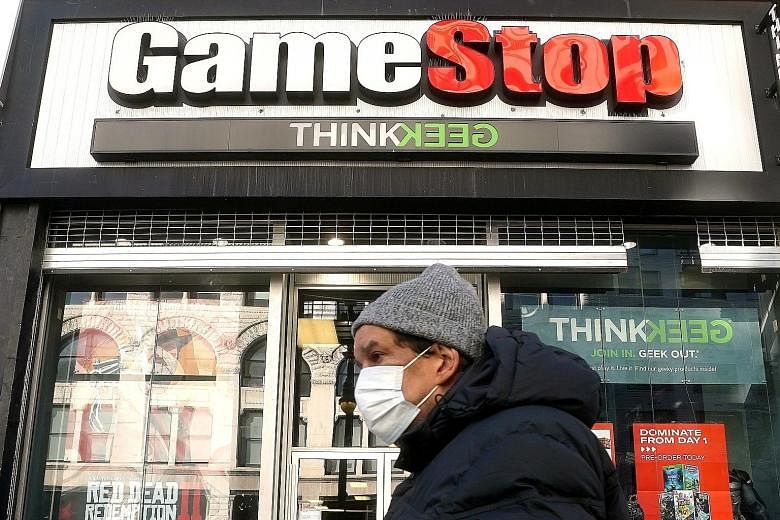Hedge funds focused on Asia are predicting a surge of new money from North America and Europe as investors move away from overvalued US assets to tap the early pandemic recovery in China and other parts of the region.
The GameStop investing craze that pitted retail traders against hedge funds may add to the Asian flows, with investors seeking to avoid similar losses from short-selling squeezes, according to hedge fund companies including APS Asset Management.
A Credit Suisse Group survey of more than 200 institutional investors with US$812 billion (S$1.09 trillion) in hedge fund assets showed Asia-Pacific was the most-sought after region with 55 per cent net demand, the highest level of interest in over a decade. By comparison, net demand for North America stood at just 20 per cent. The figures measure the share of investors planning to raise allocations minus those planning to trim.
"This year we are going to see strong net inflows based on our conversations," said Mr Richard Johnston, Asia head at Albourne Partners in Hong Kong. "The areas we are seeing most demand for are China equities, low-net hedge funds and private credit."
The investment shift could help foster growth in Asia's relatively small hedge fund industry, centred largely in Hong Kong and Singapore. Investors around the world are trying to find ways of profiting from the region's economic growth, and Asia hedge funds have outperformed global peers.
Mr Johnston, who advises investors on alternative investments, said some North American institutions are pushing China allocations to 15 per cent to 20 per cent of their overall investments in a range of asset classes.
Total assets under management by Asia-Pacific based hedge funds rose 20 per cent last year to US$155.6 billion, according to Preqin data, and firms like Dymon Asia expect more inflows this year.
"Once the (Covid-19) lockdowns come off, which could be later this year, then I think it will be very healthy for the broad industry of hedge funds out here in Asia," said Dymon Asia founding partner Danny Yong in Singapore, whose fund manages about US$5 billion.
The surge in monetary and fiscal stimulus in North America and Europe may also push some investors to park more money in Asia, skirting the frothiness of US markets, fund managers said. Regulatory changes that have made it easier for hedge funds to invest in China are also boosting demand.
"The US and Europe have thrown in the kitchen sink in terms of a liquidity and easing perspective so you have seen those asset markets have over-earned," Mr Yong said, adding that investors in those regions were previously reluctant to move money with strong gains at home. "Ultimately it's about the return until such point - and I believe that 2021 could be that year - where Asia significantly outperforms."
China's benchmark CSI 300 Index has topped the S&P 500 for the past two years, and was outpacing the US again this year before a recent pull back. The gauge is down 3.9 per cent this year, against a 4.2 per cent gain in the US index.
GAMESTOP REFUGEES
APS Asset Management chief investment officer Kok Hoi Wong, whose firm manages about US$3 billion, predicted some of the institutional investors who got burnt backing hedge funds that shorted GameStop and AMC Entertainment would redeem some money and redeploy a portion to Asia. The lack of popular forums for retail investors like WallStreetBets and platforms like Robinhood Markets means similar squeezes are less likely to happen in the region.
"It'll probably start in the second or third quarter," he said. "But whether you're operating in Asia, the US or anywhere in the world you've got to make sure your risk-controls are rigorous enough to prevent you from getting into that kind of trouble."
APS tries to avoid overly-popular positions - also known as "crowded trades" - and only shorts companies with large market capitalisations to prevent the type of swings that punished hedge funds trying to short AMC and GameStop, he added.
Still, Dymon's Mr Yong warned that similar retail-driven short-squeezing events are on the cusp of coming to Asia. Its first line of protection is to run a multi-strategy fund with low correlation to equity indexes. A second strategy is to make 1,000 short bets and 1,000 long wagers - none worth more than 1 per cent of a company's market value - to lower the potential impact of a single, major event.
BLOOMBERG

